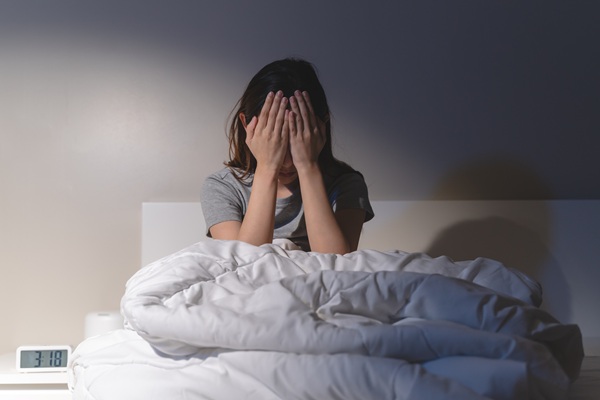Treating Insomnia With the Help of a Psychiatrist

Insomnia disrupts sleep patterns and negatively affects overall health, leading to fatigue, difficulty concentrating, and emotional distress. This condition can result from chronic stress, anxiety, depression, or medical issues that interfere with the body's natural sleep cycle. A psychiatrist can help diagnose and address insomnia, providing tailored treatments focusing on mental and physical well-being.
Insomnia: Common causes and symptoms
Insomnia is when a patient has difficulty falling asleep, staying asleep, or waking up too early without being able to return to sleep. These disruptions lead to daytime fatigue, reduced concentration, and irritability. Acute insomnia may last for a short period due to temporary stressors, while chronic insomnia persists for months and often requires medical intervention.
Several factors can contribute to insomnia, including:
- Mental health disorders or symptoms. Anxiety, depression, and mood fluctuations disrupt the ability to fall asleep or maintain restful sleep.
- Chronic stress. Stress-related insomnia is common among those dealing with work pressure, relationship issues, or financial concerns.
- Medications and stimulants. Antidepressants, corticosteroids, blood pressure drugs, and caffeine can interfere with sleep cycles.
- Irregular sleep schedules. Irregular shift work, frequent travel, and inconsistent bedtime routines disrupt the body's natural circadian rhythm.
- Underlying medical conditions. Chronic pain, sleep apnea, asthma, and neurological disorders can cause fragmented sleep.
A psychiatrist specializes in assessing the connection between mental health and sleep disorders, identifying thought patterns and behaviors that contribute to ongoing sleep difficulties. They provide individualized care that focuses on the psychological and physiological aspects of sleep regulation.
When to see a psychiatrist about insomnia
Persistent insomnia often indicates an underlying mental health condition or an imbalance in brain chemistry that requires professional evaluation. Seeking psychiatric care becomes essential when sleep disturbances occur regularly despite efforts to establish healthier sleep habits. Emotional distress, frequent mood swings, and an inability to manage daily stress may also signal the need for intervention. Chronic sleep deprivation can lead to increased anxiety, depression, and decreased overall well-being, making it important to address insomnia before it significantly impacts daily life and functioning.
Insomnia treatments from a psychiatrist
Psychiatrists offer a range of treatments to address persistent insomnia by targeting both its psychological and physiological causes. One common approach is cognitive behavioral therapy for insomnia (CBT-I), which helps patients identify and change negative thought patterns and behaviors that interfere with sleep. This structured, evidence-based therapy focuses on improving sleep hygiene, establishing consistent routines, and reducing anxiety around bedtime.
In cases where insomnia is linked to an imbalance in brain chemistry, medication may be considered as part of a comprehensive treatment plan. Psychiatrists can prescribe sleep aids or medications that regulate neurotransmitters involved in sleep, such as melatonin receptor agonists, sedative-hypnotics, or certain antidepressants. Unlike over-the-counter sleep aids, which often provide only temporary relief, psychiatric prescriptions target the root cause of insomnia and are monitored for effectiveness and safety.
Psychiatrists also help patients manage coexisting conditions that contribute to sleep disturbances, such as anxiety, depression, or bipolar disorder. Treating these underlying issues can improve sleep patterns as a secondary benefit. Additionally, psychiatrists may recommend lifestyle modifications, relaxation techniques, or mindfulness practices to support overall sleep health.
Better sleep is within reach
Managing insomnia requires a comprehensive treatment plan that addresses both mental and physical health. A psychiatrist helps identify the root causes of sleep disturbances, offering therapy, medication, and lifestyle guidance tailored to your needs. Contact our team at Hope TMS and Neuropsychiatric Center today and take the first step toward better sleep.
Request an appointment here: https://www.hopetmsofny.com or call Hope TMS and Neuropsychiatric Center at (646) 578-8152 for an appointment in our New York office.
Check out what others are saying about our services on Yelp: Insomnia in New York, NY.
Recent Posts
Relationship obsessive-compulsive disorder (ROCD) is a distinct subtype of OCD that can cause persistent doubts and distressing thoughts about romantic relationships. OCD treatment can help individuals manage their intrusive thoughts and compulsive behaviors associated with ROCD. Understanding and having access to the available treatment options can help individuals regain control over their thoughts and the…
Smoking cessation is one of the best things a person can do for their health. Still, despite the ill health effects of smoking and the clear benefits of quitting, many people find it nearly impossible to quit on their own. If you are finding it hard to quit, gain insight into why you may be…
Transcranial magnetic stimulation (TMS) is a cutting-edge treatment that offers hope for people dealing with depression and anxiety, especially those who have not found relief with medication or therapy. TMS is a non-invasive procedure that uses magnetic fields to stimulate specific areas of the brain involved in mood regulation. This innovative approach is helping many…
Everyone experiences occasional anxiety, but an anxiety disorder involves persistent, excessive worry and physical symptoms that can disrupt daily routines, relationships, and overall well-being. If left untreated, these symptoms can intensify, impacting mental and physical health. Seeking help from a psychiatrist can be a significant first step toward effectively managing anxiety disorder symptoms and getting…


